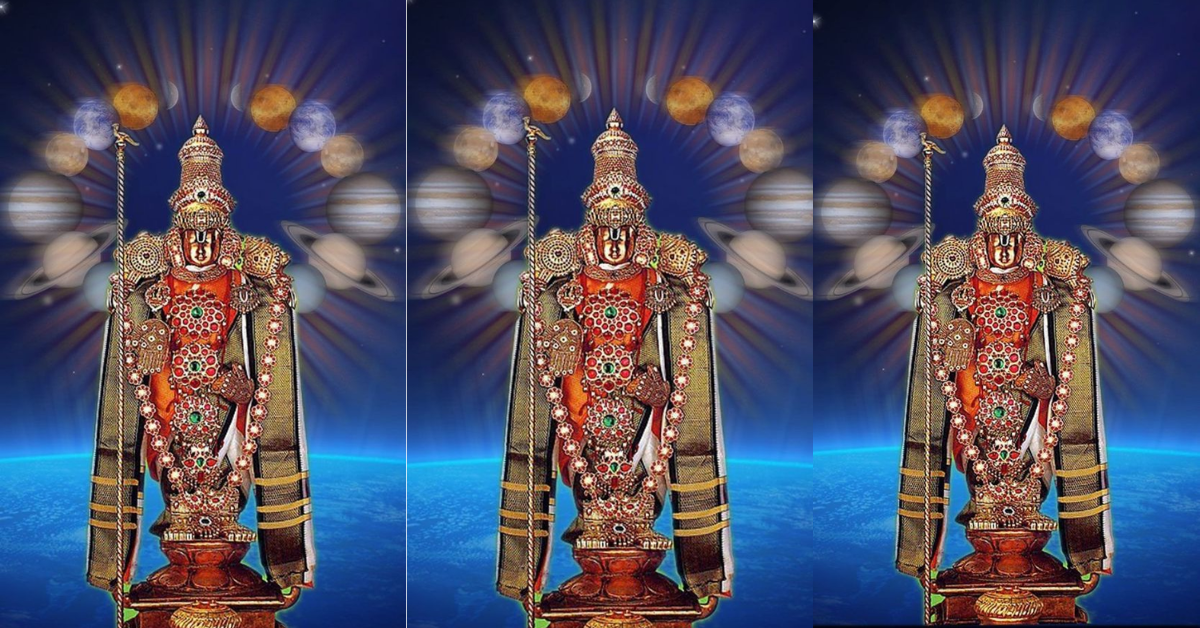What Is Allowed In Tirumala Temple
Dress Code and Restrictions at Tirumala Temple: A Comprehensive Guide
We must need to know about What Is Allowed In Tirumala Temple is Tirumala Venkateswara Temple, located in the scenic hills of Tirupati in Andhra Pradesh, is one of the most significant and revered temples in India. Dedicated to Lord Venkateswara, a form of the Hindu god Vishnu, the temple attracts millions of pilgrims and devotees every year. Known for its strict adherence to ancient customs and traditions, the temple has a specific set of rules and regulations that all visitors must follow to maintain its sanctity. One of the most notable aspects of visiting Tirumala Temple is the dress code and the various prohibitions related to items that can be brought into the temple premises.
In this article, we will delve into the details of the dress code, the reasons behind it, and the significance of the restrictions on electronic gadgets, cameras, and non-vegetarian food. We will also explore the historical, cultural, and spiritual importance of these rules, helping visitors understand why they are integral to the temple experience.
The Importance of Traditional Attire at Tirumala Temple
The dress code at Tirumala Temple is not just a rule but a reflection of the deep-rooted customs and traditions associated with the temple. The requirement to wear traditional attire is a way of showing respect to the deity and the sacredness of the space. Let’s look at the specifics of the dress code:
For Men:
Dhoti and Angavastram: Men are required to wear a white or saffron-colored dhoti (a traditional garment tied around the waist) along with an angavastram (a shoulder cloth).
Kurta or Shirt: While some may choose to go bare-chested as a mark of respect, it is acceptable to wear a simple shirt or kurta (a loose-fitting, long-sleeved shirt) over the dhoti.
Prohibited Clothing: Men are not allowed to wear pants, shorts, t-shirts, or any other form of western or casual clothing inside the temple premises.
For Women:
Sari or Half-Sari: Women are expected to wear a sari, which is a traditional Indian garment consisting of a long piece of cloth draped elegantly over the body. Young girls or unmarried women may wear a half-sari or langa-voni (a long skirt paired with a blouse and a dupatta).
Salwar Kameez: While saris are preferred, women can also wear a salwar kameez (a traditional suit comprising a long tunic and loose-fitting pants), as long as it is modest and covers the body appropriately.
Prohibited Clothing: Western outfits like jeans, skirts, and dresses are not allowed, nor are any revealing or tight-fitting clothes.
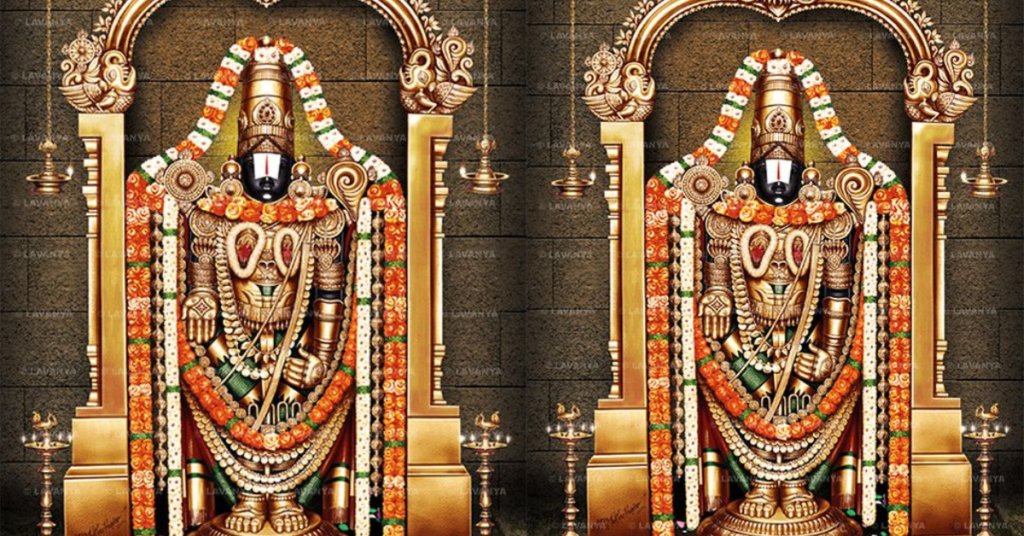
Why is Traditional Attire Mandatory?
The dress code at Tirumala Temple is rooted in the concept of maintaining purity and sanctity. Traditional attire is seen as a mark of respect towards the deity, fellow pilgrims, and the temple itself. Here are a few reasons why the temple insists on traditional clothing:
Cultural Preservation: Tirumala Temple is an ancient place of worship that has stood for centuries. By enforcing the dress code, the temple authorities ensure that the culture and traditions passed down through generations are preserved. Wearing traditional attire creates an atmosphere that honors the past and keeps the heritage alive.
Symbol of Devotion: The act of donning traditional clothing is often seen as a symbolic gesture of devotion and humility. When pilgrims dress in a simple, unadorned manner, it signifies their focus on the spiritual aspect of the visit rather than worldly distractions.
Respect for Rituals: Many Hindu rituals require participants to wear specific clothing. For example, men often go bare-chested during religious ceremonies, which is considered a sign of purity. The temple’s dress code aligns with these ritualistic requirements and ensures that visitors are dressed appropriately for any ceremonies they may participate in or witness.
Equality Among Devotees: Traditional clothing creates a sense of equality among all devotees, regardless of their social or economic background. When everyone wears similar attire, it eliminates any outward distinctions of class or status, fostering a sense of unity and community.
Spiritual Discipline: The dress code is also viewed as a form of spiritual discipline. By adhering to these guidelines, devotees demonstrate their willingness to set aside personal preferences and conform to the temple’s spiritual ethos. This act of self-regulation is seen as a step toward achieving inner peace and humility. And this is the best answer for What Is Allowed In Tirumala Temple.
Prohibition of Electronic Gadgets and Cameras
In addition to the strict dress code, the temple authorities have also banned the use of electronic gadgets and cameras within the temple premises. This includes mobile phones, cameras, tablets, and any other device that can record or transmit images or videos. The reasons behind this ban are both practical and spiritual.
Spiritual Reasons:
Maintaining Focus on Devotion: The primary purpose of visiting Tirumala Temple is to offer prayers and seek blessings from Lord Venkateswara. The presence of electronic gadgets can distract devotees from their spiritual focus. By banning these devices, the temple encourages pilgrims to fully immerse themselves in the experience and maintain their concentration on worship.
Preserving the Sanctity of the Deity: In Hindu tradition, the image of the deity is considered sacred and is not meant to be treated casually. The act of taking photographs or videos of the deity can be seen as disrespectful, as it turns a spiritual moment into a mere photo opportunity. By prohibiting cameras, the temple ensures that the sanctity of the deity is upheld.
Protecting the Privacy of Devotees: Many pilgrims visit Tirumala Temple to perform personal rituals and seek spiritual solace. The presence of cameras can infringe on their privacy, as they may not want their personal moments to be captured or shared. The ban on cameras helps create an atmosphere of reverence and respect for every individual’s spiritual journey.
Practical Reasons:
Preventing Security Risks: With the large number of devotees visiting Tirumala Temple every day, managing security is a significant concern. Banning electronic gadgets helps reduce the risk of potential security breaches, as these devices could be used to capture sensitive information or record areas of the temple that are not meant for public access.
Reducing Congestion and Delays: Allowing cameras and phones inside the temple could lead to congestion, as devotees might stop to take pictures or videos, causing delays in the smooth flow of the crowd. The ban ensures that the line of pilgrims moves efficiently, allowing everyone to have their turn to offer prayers without unnecessary interruptions.
Protecting the Temple’s Architecture: The temple is home to intricate and delicate carvings, murals, and sculptures, some of which date back centuries. Flash photography and other forms of artificial light can cause damage to these artworks over time. By prohibiting cameras, the temple authorities help preserve the historical and artistic integrity of the temple’s architecture.
Ban on Non-Vegetarian Food
Another important regulation at Tirumala Temple is the prohibition of non-vegetarian food within the temple complex and the surrounding hill areas. This rule is consistent with the temple’s commitment to maintaining spiritual purity and aligning with Hindu dietary practices.
Religious Significance:
Sattvic Diet: In Hinduism, a sattvic diet is considered the most conducive to spiritual growth. Sattvic food is pure, light, and easy to digest, and it includes fresh fruits, vegetables, grains, and dairy products. Non-vegetarian food, on the other hand, is considered tamasic, which means it is heavy and can lead to lethargy and a clouded mind. Consuming only vegetarian food during a temple visit helps devotees maintain mental clarity and focus on their spiritual objectives.
Respect for Life: Hinduism teaches respect for all forms of life, and many devotees view vegetarianism as an extension of the principle of ahimsa, or non-violence. By abstaining from non-vegetarian food, especially in a sacred space like Tirumala, devotees are aligning their actions with the values of compassion and non-harm.
Purity and Cleanliness: The temple is a place of purity, both in terms of the physical environment and the spiritual atmosphere. Non-vegetarian food, especially meat, is often associated with impurity in Hindu tradition. By banning such foods, the temple ensures that the sacredness of the space is preserved, and the environment remains clean and pure.
Practical Considerations:
Environmental Preservation: The Tirumala hills are home to a rich variety of flora and fauna. By banning non-vegetarian food, the temple authorities help protect the local wildlife from potential harm or disruption. The hills are considered a sacred ecosystem, and the prohibition of meat ensures that the animals living in the area are not endangered by human activities.
Waste Management: Non-vegetarian food generates a significant amount of waste, including bones, packaging, and other refuse that can be difficult to manage in a temple environment. By enforcing a vegetarian-only policy, the temple authorities are able to minimize waste and maintain a cleaner, more hygienic space for devotees. And this is also one of the best answer for What Is Allowed In Tirumala Temple.
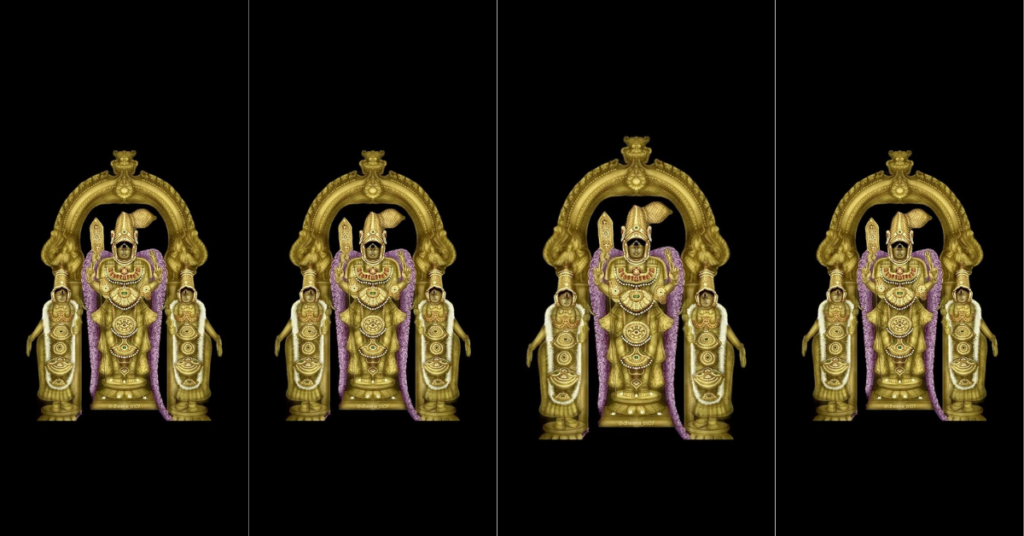
How to Prepare for a Visit to Tirumala Temple
If you’re planning a visit to Tirumala Temple, it’s important to be aware of the rules and guidelines to ensure a smooth and fulfilling pilgrimage. Here are a few tips to help you prepare:
Dress Appropriately: Ensure that you and your family members are dressed in traditional attire before arriving at the temple. Men should wear a dhoti and angavastram, while women should wear a sari or salwar kameez. Avoid bringing any western or casual clothing, as you may be denied entry if you are not dressed according to the temple’s dress code.
Leave Gadgets Behind: Plan to leave your electronic gadgets, including mobile phones, cameras, and tablets, either at your hotel or in a designated locker outside the temple. The temple provides locker facilities where you can safely store your belongings while you offer your prayers.
Respect the Food Guidelines: Refrain from bringing any non-vegetarian food into the temple area. Stick to vegetarian meals during your visit, and if you’re staying overnight in the hill area, make sure to consume only vegetarian food in keeping with the temple’s guidelines.
Follow the Temple’s Code of Conduct: The temple has specific guidelines regarding behavior inside the premises. Speak softly, maintain cleanliness, and show respect to fellow devotees. Avoid pushing or rushing, as the temple authorities ensure that everyone gets their chance to offer prayers.
- Dress Code and Attire
As mentioned earlier, traditional attire is mandatory at Tirumala Temple, and adhering to this rule is one of the first steps in preparing for your visit.
For Men:
Dhoti and Angavastram: Men are required to wear a dhoti and an upper cloth (angavastram). Ensure that your attire is neat and modest.
Kurta or Shirt: While wearing an upper cloth is allowed, avoid wearing t-shirts or western-style clothing.
designated shoe-keeping areas near the entrance.
For Women:
Sari or Salwar Kameez: Women should wear traditional attire like a sari or a salwar kameez. Ensure that the clothing is modest and covers the body appropriately.
Young Girls: Girls can wear half-saris or langa-voni, a traditional South Indian outfit.
Head Covering: While not mandatory, some women choose to cover their heads as a sign of respect when entering the temple.
General Tips:
Carry Extra Clothes: If you plan to stay overnight or participate in specific rituals, bring extra traditional clothes, as there may be specific dress requirements for certain ceremonies.
Renting Clothes: If you’re unable to bring traditional clothes, you can rent them from shops around Tirumala. However, it’s better to be prepared in advance.
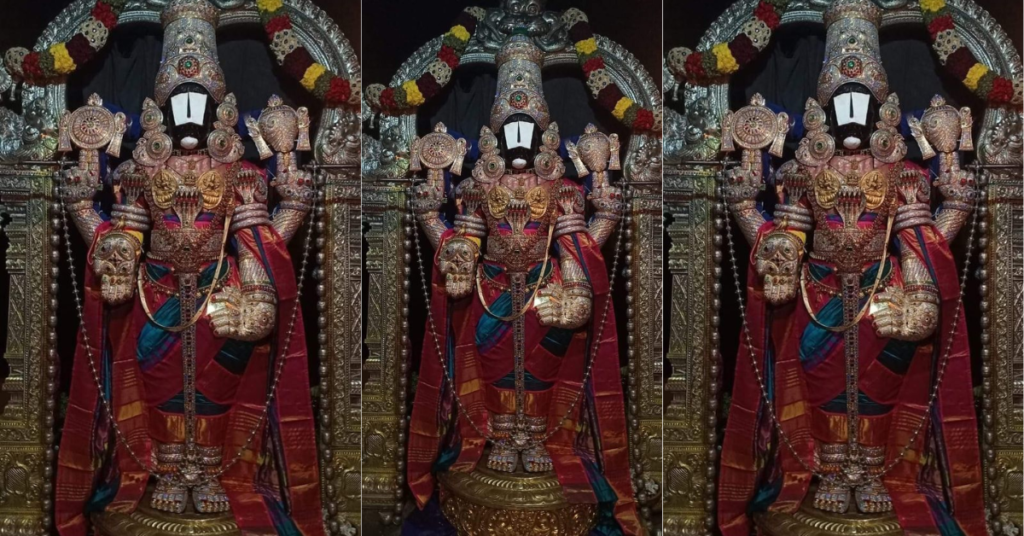
- Timing and Darshan Booking
Tirumala Temple attracts millions of devotees each year, so planning your visit in advance is crucial, especially when it comes to darshan timings and ticket bookings.
Types of Darshan:
Sarva Darshan (Free Darshan): This is free and open to all devotees, but the waiting time can be long (several hours). It’s advisable to visit during weekdays or non-peak times to avoid long queues.
Special Entry Darshan (Rs. 300 Darshan): This is a paid darshan that allows faster access. Tickets can be booked online through the TTD (Tirumala Tirupati Devasthanams) website. Booking in advance is recommended, especially during peak seasons like festivals.
Seva Tickets: If you want to participate in special pujas or sevas (rituals), you’ll need to book these tickets separately online. These tickets are limited and in high demand, so book as early as possible.
Peak Times and Festivals:
Plan Your Visit: Try to avoid peak seasons, which include weekends, public holidays, and major festivals like Brahmotsavam or Vaikunta Ekadasi. During these times, the temple is exceptionally crowded, and you may face longer wait times for darshan.
Best Time to Visit: The ideal time to visit Tirumala is during the early morning hours when the crowds are smaller, or during weekdays outside of the festive season.
- Accommodation at Tirumala
If you plan to stay overnight, it’s important to book your accommodation in advance, as Tirumala sees a large influx of pilgrims daily.
TTD Accommodation:
Rooms at Tirumala: TTD offers a range of accommodation options in Tirumala, from budget rooms to more comfortable guest houses. These can be booked online through the TTD website.
Guest Houses: Pilgrims can also opt for various guest houses managed by TTD, which are located near the temple for easy access. Prices vary, but all accommodations are generally affordable.
Check-in Time: Be aware of the check-in and check-out times for rooms, as they are often strictly enforced. Arrive at Tirumala on time to avoid losing your booking.
Alternative Accommodation:
Private Hotels: If TTD rooms are unavailable, you can also stay in Tirupati town, which has several private hotels and guest houses. Regular buses and private vehicles operate between Tirupati and Tirumala.
Ashrams and Choultries: These are community accommodations provided by religious institutions, offering basic amenities at low costs.
Special Notes:
No Alcohol or Smoking: Tirumala is a sacred space, so alcohol and smoking are strictly prohibited within the hill area.
Water and Basic Amenities: TTD provides free drinking water, washroom facilities, and basic amenities across the temple complex and accommodation areas.
- What to Carry for the Visit
Packing appropriately is key to ensuring a comfortable pilgrimage experience. Here’s a checklist of essential items:
Mandatory Items:
Identity Proof: If you’ve booked darshan or accommodation online, bring a government-issued photo ID such as an Aadhaar card, passport, or voter ID. ID proof is required to collect your tickets or check in to accommodation.
Cash: While there are ATMs in Tirumala, it’s a good idea to carry some cash for small purchases, donations, or food.
Chanting Books/Prayer Material: Some devotees like to carry chanting books, prayer beads (japa mala), or other spiritual items for personal worship during the wait for darshan.
Optional Items:
Food and Snacks: You may want to carry some light snacks, especially if you’re traveling with children or elderly family members. Only vegetarian food is allowed.
Medicines: Bring any necessary medications, as medical stores in Tirumala may not stock all items.
Water Bottle: While drinking water is available, carrying your own water bottle may come in handy, especially during long queues for darshan.
Things to Avoid:
Electronic Devices: As electronic gadgets are not allowed inside the temple, avoid carrying mobile phones, cameras, and tablets. Use lockers provided near the temple for safekeeping if necessary.
Valuables: Do not bring expensive jewelry, large amounts of cash, or other valuables to the temple, as thefts can happen in crowded areas. And this is also one of the best answer for What Is Allowed In Tirumala Temple.
- Dress Code and Attire
As mentioned earlier, traditional attire is mandatory at Tirumala Temple, and adhering to this rule is one of the first steps in preparing for your visit.
For Men:
Dhoti and Angavastram: Men are required to wear a dhoti and an upper cloth (angavastram). Ensure that your attire is neat and modest.
Kurta or Shirt: While wearing an upper cloth is allowed, avoid wearing t-shirts or western-style clothing.
designated shoe-keeping areas near the entrance.
For Women:
Sari or Salwar Kameez: Women should wear traditional attire like a sari or a salwar kameez. Ensure that the clothing is modest and covers the body appropriately.
Young Girls: Girls can wear half-saris or langa-voni, a traditional South Indian outfit.
Head Covering: While not mandatory, some women choose to cover their heads as a sign of respect when entering the temple.
General Tips:
Carry Extra Clothes: If you plan to stay overnight or participate in specific rituals, bring extra traditional clothes, as there may be specific dress requirements for certain ceremonies.
Renting Clothes: If you’re unable to bring traditional clothes, you can rent them from shops around Tirumala. However, it’s better to be prepared in advance.
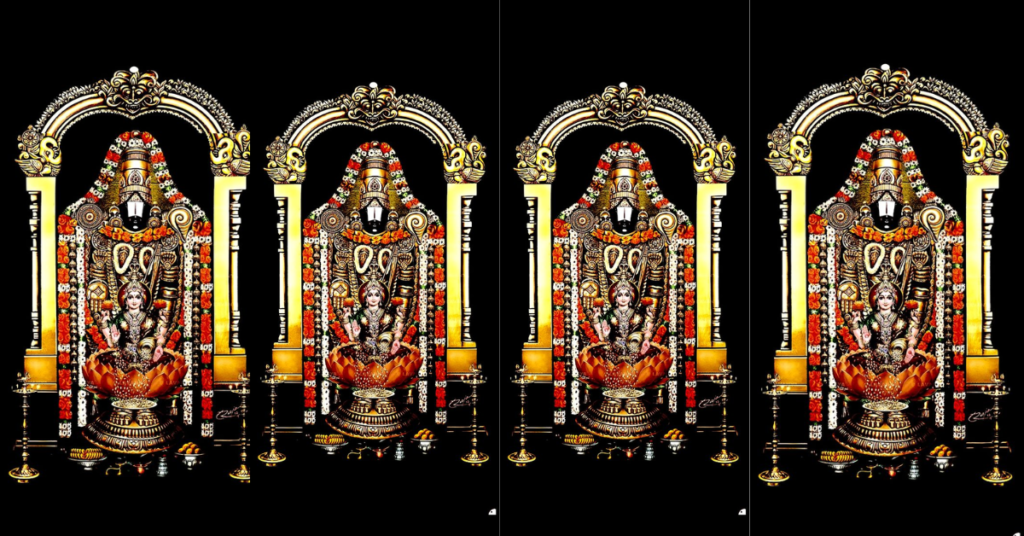
- Timing and Darshan Booking
Tirumala Temple attracts millions of devotees each year, so planning your visit in advance is crucial, especially when it comes to darshan timings and ticket bookings.
Types of Darshan:
Sarva Darshan (Free Darshan): This is free and open to all devotees, but the waiting time can be long (several hours). It’s advisable to visit during weekdays or non-peak times to avoid long queues.
Special Entry Darshan (Rs. 300 Darshan): This is a paid darshan that allows faster access. Tickets can be booked online through the TTD (Tirumala Tirupati Devasthanams) website. Booking in advance is recommended, especially during peak seasons like festivals.
Seva Tickets: If you want to participate in special pujas or sevas (rituals), you’ll need to book these tickets separately online. These tickets are limited and in high demand, so book as early as possible.
Peak Times and Festivals:
Plan Your Visit: Try to avoid peak seasons, which include weekends, public holidays, and major festivals like Brahmotsavam or Vaikunta Ekadasi. During these times, the temple is exceptionally crowded, and you may face longer wait times for darshan.
Best Time to Visit: The ideal time to visit Tirumala is during the early morning hours when the crowds are smaller, or during weekdays outside of the festive season.
- Accommodation at Tirumala
If you plan to stay overnight, it’s important to book your accommodation in advance, as Tirumala sees a large influx of pilgrims daily.
TTD Accommodation:
Rooms at Tirumala: TTD offers a range of accommodation options in Tirumala, from budget rooms to more comfortable guest houses. These can be booked online through the TTD website.
Guest Houses: Pilgrims can also opt for various guest houses managed by TTD, which are located near the temple for easy access. Prices vary, but all accommodations are generally affordable.
Check-in Time: Be aware of the check-in and check-out times for rooms, as they are often strictly enforced. Arrive at Tirumala on time to avoid losing your booking.
Alternative Accommodation:
Private Hotels: If TTD rooms are unavailable, you can also stay in Tirupati town, which has several private hotels and guest houses. Regular buses and private vehicles operate between Tirupati and Tirumala.
Ashrams and Choultries: These are community accommodations provided by religious institutions, offering basic amenities at low costs.
Special Notes:
No Alcohol or Smoking: Tirumala is a sacred space, so alcohol and smoking are strictly prohibited within the hill area.
Water and Basic Amenities: TTD provides free drinking water, washroom facilities, and basic amenities across the temple complex and accommodation areas.
- What to Carry for the Visit
Packing appropriately is key to ensuring a comfortable pilgrimage experience. Here’s a checklist of essential items:
Mandatory Items:
Identity Proof: If you’ve booked darshan or accommodation online, bring a government-issued photo ID such as an Aadhaar card, passport, or voter ID. ID proof is required to collect your tickets or check in to accommodation.
Cash: While there are ATMs in Tirumala, it’s a good idea to carry some cash for small purchases, donations, or food.
Chanting Books/Prayer Material: Some devotees like to carry chanting books, prayer beads (japa mala), or other spiritual items for personal worship during the wait for darshan.
Optional Items:
Food and Snacks: You may want to carry some light snacks, especially if you’re traveling with children or elderly family members. Only vegetarian food is allowed.
Medicines: Bring any necessary medications, as medical stores in Tirumala may not stock all items.
Water Bottle: While drinking water is available, carrying your own water bottle may come in handy, especially during long queues for darshan.
Things to Avoid:
Electronic Devices: As electronic gadgets are not allowed inside the temple, avoid carrying mobile phones, cameras, and tablets. Use lockers provided near the temple for safekeeping if necessary.
Valuables: Do not bring expensive jewelry, large amounts of cash, or other valuables to the temple, as thefts can happen in crowded areas.
TO KNOW MORE INFORMATION ABOUT THE DETAILS OF TIRUMALA THEN CLICK HERE

